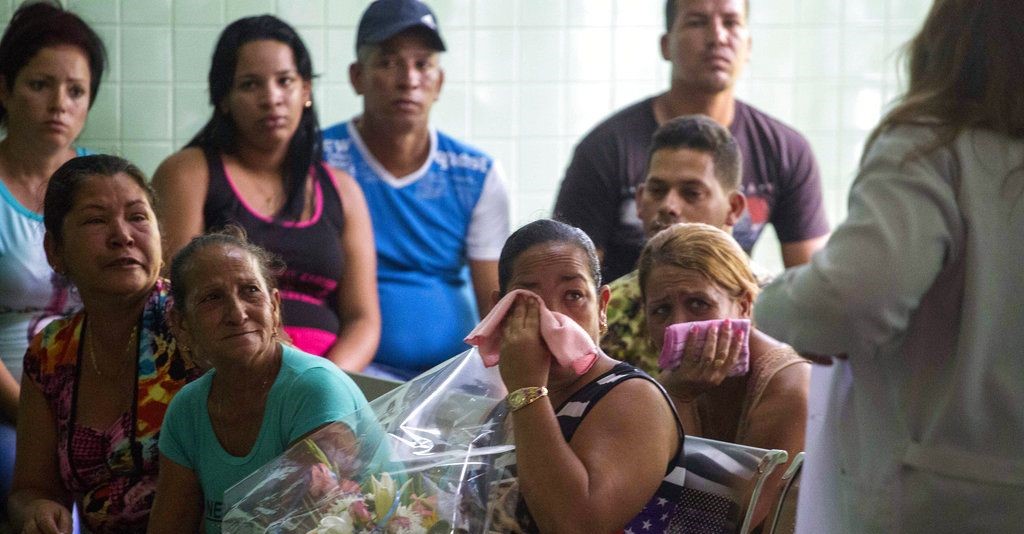Two years after the accident of the Cubana de Aviación flight chartered from the Mexican company Global Air, considered the worst disaster in the history of civil aviation on the island the families of the 112 victims are still waiting for justice and reparations.
To date the lawsuits filed in Mexico, Spain and the US against the insurance company Ve por Más SA, the Grupo Financiero Ve por Más, and the owner of Aerolíneas Damojh (Global Air), Manuel Rodríguez Campos, are still being handled at international firms.
DIARIO DE CUBA spoke with Spanish attorney Carlos Villacorta Salís, managing partner of BCV Lex, a law firm representing 40 families and the cabin crew of the Boeing 737-200 wreck, who told us that his firm is "in the process of publishing announcements and edicts, in light of the fact that Mr. Rodríguez Campos is missing. The Mexican system is very bureaucratic, and the process has also been delayed by the pandemic. Due to the confinement, the courts in Mexico and Spain have been closed, all the deadlines have been extended, and the commencement of proceedings slated has been delayed."
"Likewise, in Cuba the necessary process for the legalization of the documents accrediting kinship between the victims and the aggrieved relatives is also being delayed. We are working with the Consultoría Jurídica Internacional, our legal representatives on the Island, to facilitate this process," he reported.
To date, the relatives that Villacorta Salís represents have not received any compensation, although "some have received small advances, especially in those cases where there were minors. In any case, the funds are insufficient, and do not meet the minimum international standards."
However, he indicated that some of the people received "final offers, without any counsel, not in line with the enormous damages suffered by the families, and not even minimally acceptable."
On this matter DIARIO DE CUBA spoke with the mother of one of the deceased, a resident of Holguín who is not a party to any of the lawsuits currently under way.
According to the this woman, who agreed to speak on condition of anonymity, in July of 2019 the affected families were summoned by a lawyer with the Alejandro Vigil Iduate International Law Firm, who told them that he would act as a mediator between them and the Cuban State.
The official proposed granting them 5,000 CUC of aid for the legalization of the notarial documents necessary for the procedures, split between the victim's father and mother. The sum was given to them as a bank deposit, with a magnetic card as a means of payment.
"According to them, it was not an indemnity, but rather aid. But first they asked if we had filed any other claims. We had to put that in writing, to sign," said the source.
"They made it clear to us that other families who have been doing the legalization in other countries would not receive the aid," she added. In addition, Cuban legal representatives interviewed the director of the company where the deceased worked, to find out how much he earned there.
"They never contacted us again. Not even to ask how we were. They soon forgot about the accident. But not about the shots that were fired at the Cuban Embassy in the United States days ago," she said.
In August 2019, Archivo Cuba presented a report entitled "Cuba violates international law by not offering compensation for civil aviation accidents", in which it stated that the regime's practice of not compensating the families of the victims has spanned decades.
In the report, the group based in Puerto Rico, whose main mission is to document cases of deaths caused by the Cuban State over the course of its history, condemned the regime for not complying with its obligations under international law by failing to compensate "the relatives of at least 180 deceased" in aircraft accidents.
Archivo Cuba have asked the governments of the world "to impose sanctions on Cuba until it pays the compensation requested by all victims of accidents occurring since the entry into force of the Montreal Convention (1999)" and "to issue urgent travel alerts to advise their citizens."
The Montreal Convention specifies that "regardless of the cause or who was responsible for any civil aviation accident, the families of all the deceased must be compensated." The treaty was signed by the Cuban Government on May 28, 1999; ratified on October 14, 2005; and entered into force on December 13, 2005.
In addition, it has asked the International Civil Aviation Organization to carry out an "exhaustive, independent and comprehensive investigation into Cuba's civil aviation practices and their compliance with the agreements it has signed, including compensation for victims of air disasters, and to report the results, in a totally transparent way, to the world. "
